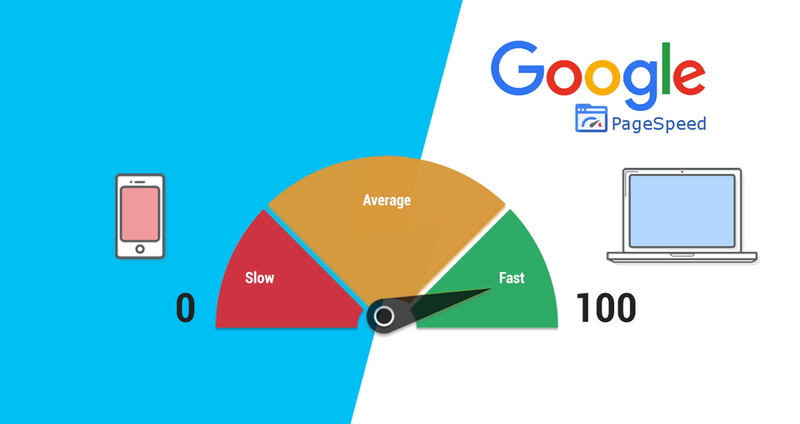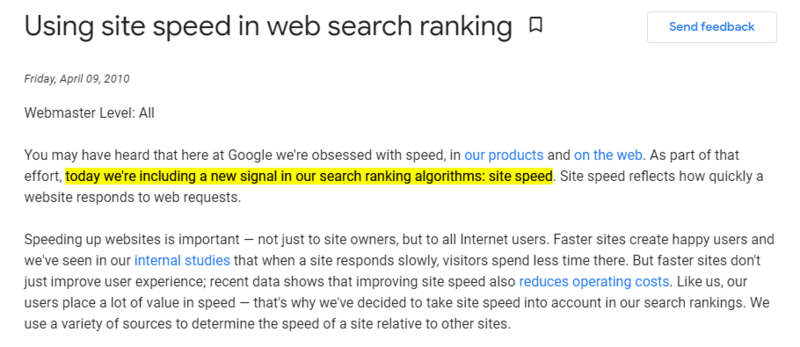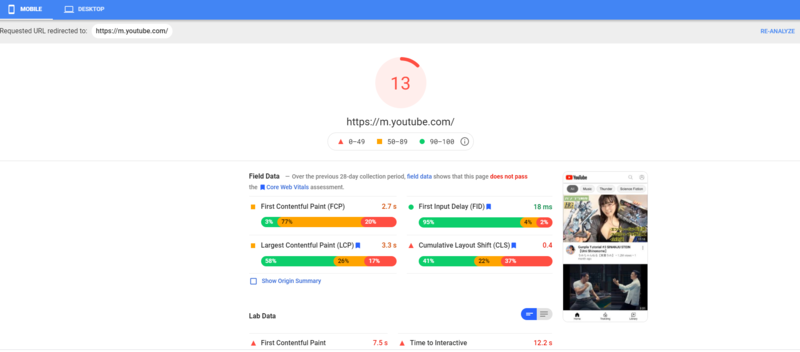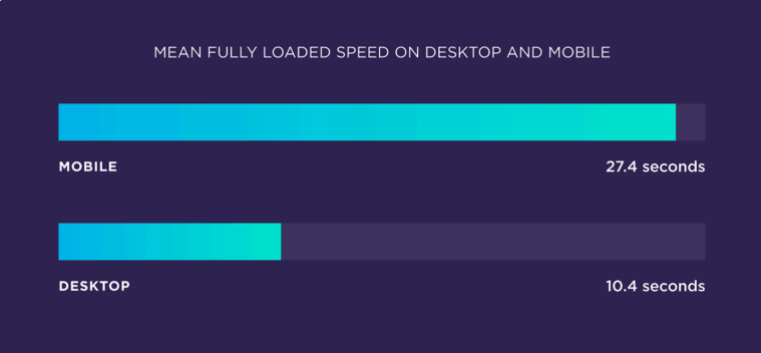How Page Speed Impacts SEO & Google Rankings
Page speed is a major aspect of search engine optimization (SEO). It impacts not only search rankings but also your user mobile experience. Long loading times of a website lead to bad user experience and cause users to quickly leave a site. More importantly, it directly affects your SEO rankings.
But exactly what is page speed, why is page speed so important, how important is page speed for rankings and what’s good page speed? Read on to get the answer.
Contents
What is Page Speed?
Page Speed is the speed at which an individual page loads on your website. Different pages can have different speeds due to factors such as images and scripts. It can be described in either “page load time” (the time it takes to fully display the content on a specific page) or “time to first byte” (how long it takes for your browser to receive the first byte of information from the webserver).
Every page element – its HTML code, CSS that styles page elements, various JavaScript files, images, videos and other multimedia and so much more – affects the page speed. You can use many page speed test tools to know the speed of any page.

Why Is Page Speed Important for SEO?
Page speed is important for SEO because Google has used page speed as a ranking factor since 2010. It made several announcements about this over the years.
- April 9, 2010 – “Today we’re including a new signal in our search ranking algorithms: site speed.”
- January 17, 2018 – “Today we’re announcing that starting in July 2018, page speed will be a ranking factor for mobile searches.”
- May 28, 2020 – “Today, we’re building on this work and providing an early look at an upcoming Search ranking change that incorporates these page experience metrics. We will introduce a new signal that combines Core Web Vitals with our existing signals for page experience to provide a holistic picture of the quality of a user’s experience on a web page.”
- April 19, 2021 – “We’ll begin using page experience as part of our ranking systems beginning in mid-June 2021. However, page experience won’t play its full role as part of those systems until the end of August.”

Aside from SEO reasons, pages that load very slowly can cause users to get frustrated and leave your site, leading to higher bounce rates and lower conversions. That’s why it is always important to speed up your website.
How Important Is Page Speed for Rankings?
So yes, page speed is important for SEO, but to what degree page speed will affect rankings? How important is page speed for rankings?
I’ve seen sites with perfect page speed score ranking poorly and websites with a score lower than 50 that rank very well (#YouTube).

Page Speed is a ranking factor, for sure. But it is one of the 200+ ranking factors. When it comes to algorithms, not all signals are created equal. Page speed, for example, is less important than the relevance of a page’s content.
According to Martin Splitt, “If you have bad content but you’re the fastest website out there, then that won’t help you.”
According to Google’s John Mueller, “We try to differentiate between sites that are significantly slow and sites within a normal range. When we’re looking at things that are really, really slow… that’s where algorithms might take action as far as how they show it in the search results. If you’re within the reasonable range…a couple of seconds or even half a minute, tweaking that isn’t going to have a direct effect on your rankings.”
So page speed is not the ultimate ranking factor that will ruin the efforts you made in other factors. You should try to make your website as fast as you can. But it does not mean you have to get the 100 score. As long as your website loads in around 3 seconds, you should be fine with most users and Google.
What Your Page Speed Should Be
So, now that you know what is page speed and how it imputes SEO, how fast should your page load? The short answer is “as fast as possible.”
How fast is fast enough?
According to a page speed study by Backlinko, the average page loading speed for a web page is 10.3 seconds on desktop and 27.3 seconds on mobile. On average, pages take 87.84% longer to load on mobile devices than on desktop.

Wondering if your site faster than the average? Luckily, there are several tools that allow you to benchmark your page speed. You can check our page speed tools list to test your website’s speed instantly.
Final Thoughts
It’s important to have the best page speed that you can. In this way, both users and crawlers to be able to instantly access all of your content as fast as possible. However, don’t overate the importance of page speed for SEO. As long as your website is not very very very slow…slow…slow…you won’t be punished. The same, even if your page speed is lower than 1 second, it won’t greatly improve your rankings.
